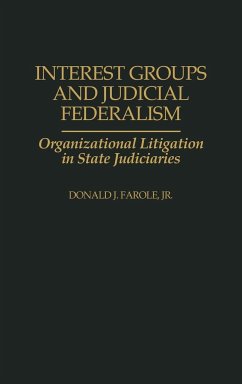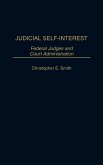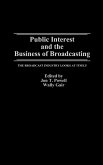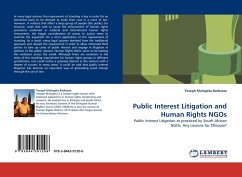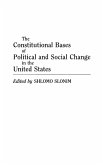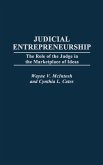Throughout this century, organized interest groups have played a central role in U.S. Supreme Court litigation on issues of civil rights and liberties. Yet in recent decades, the Court has been less willing to protect many rights and has discouraged the use of federal court forums. With the federal courts inhospitable or unavailable, interest groups have had greater incentive to enter state judiciaries. Proponents of the new judicial federalism urge groups and other litigants to seek greater individual protection based on state constitutions than that required under federal constitutional standards. Farole examines the conditions under which groups are likely to enter state litigation. How the Supreme Court decisions provide incentives or disincentives for organizational action in state judiciaries as well as how other factors specific to organizations condition their willingness and ability to enter state courts is of particular concern. Farole also examines whether groups assert rights claims based on state constitutional law. He provides a comparative analysis of group litigation in two issue areas-eminent domain and obscenity-in five states. Evidence is taken from a variety of sources including interviews, interest group and court files, and published court opinions. The analysis provides insights into the ability of interest groups to remain active in rights litigation by turning their lobbying efforts to state judiciaries. This book is of particular interest to political scientists and academic lawyers concerned with federalism, interest groups, judicial politics, and civil liberties.
Hinweis: Dieser Artikel kann nur an eine deutsche Lieferadresse ausgeliefert werden.
Hinweis: Dieser Artikel kann nur an eine deutsche Lieferadresse ausgeliefert werden.

